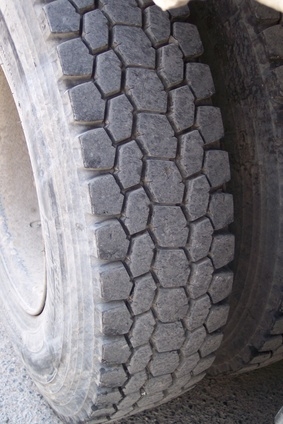
Tire cracking, also called weather cracking, occurs on all tires. Weather conditions such as heat, cold and sunlight cause cracks to appear on the sidewalls and at the base of tire's tread grooves. Tire cracking is a problem more for stored vehicles such as RVs, classic cars and trailers. That's especially the case if those vehicles are stored outside. While you cannot prevent minor cracks, you can take steps to protect your tires from major damage.
Clean tires with mild soap and water. Avoid using alcohol and petroleum-based cleaners as the rubber surface gets dry and cracks easier. Tires also contain protective antioxidants and anti-ozones. If you wash them with harsh chemicals, you will remove the protective layer allowing the tires to prematurely deteriorate.
Inflate the tires according to the manufacturer's recommendations when in use and in storage. Under or over inflating tires will cause them to age sooner and minor cracks to deepen.
Store the vehicle on surfaces, such as cement, that are free of petroleum. Avoid storing the vehicle outside in extreme weather conditions. Do not leave your vehicle on frozen ground for long periods of time. If you must leave it outside during the cold months, place something under the tires to prevent them from freezing to the ground. During the hot weather months, do not leave the vehicle outside in direct sunlight. Ultraviolet rays cause a lot of damage to sidewalls, including deep cracking. Cover the tires to block the sun.
Drive the vehicle every couple of months. When tires move, they heat up and the protective components such as antioxidants and anti-ozones move closer to the surface preventing them from cracking.
Unload your RV before storing it to avoid any additional weight on the tires.
Inspect the tires before driving a stored vehicle. If you're unsure about the tires, ask a professional to inspect them.